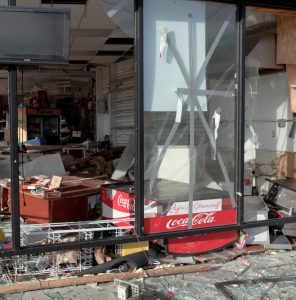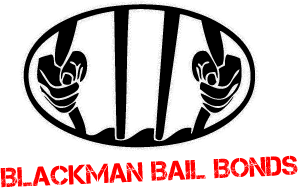Civil unrest brings about a lot of mixed feelings and high tensions. Regardless of how you view the politics involved, damages from riots are very real and tangible effects of the situation. What do you do if you experience the destruction of property during a riot? There are a few steps to consider in gaining reparations. Blackman Bail Bonds wants to help you navigate the process and explains some of your options below.
Property Damage During a Riot
If you own property or a business in a high tension area in some of the larger cities of the United States, you’ve likely dealt with it recently. It may have been decades since our country saw this level of civil unrest, but it has happened before.
Typical damage seen during riots can be superficial, like broken windows, scratch marks on exterior walls from smoke grenades and flashbangs, and even graffiti. You could also see more catastrophic damages from things such as looting, arson, and vehicle damages.
Who Pays for Damages?
There is a lot of confusion around who pays for any damages from destruction of property. Does the business or homeowner get stuck with the bill? Can you collect the costs of the damages from any of the rioters responsible? Many details go into figuring out the answer, and no two cases will be the same. 
Insurance Companies
Most city governments require physical businesses to carry business insurance policies. Traditionally, these policies pay for most types of damages. Still, recent changes in some policies have shifted the fine print to include exclusions, such as theft or unpreventable injury damages.
Another roadblock that prevents you from getting back to business is from high deductibles. The benefit of a higher deductible is that you pay less monthly. For small businesses, this is often the most cost-effective option. However, when riots or natural disasters cause damage to your business, the insurance company isn’t required to cover anything until that deductible has been paid.
Rioters
If the police make arrests, the cost of damages can be added to their sentence when they go to trial. However, the chaos during riots means that pinning the blame on just one or two rioters is nearly impossible. Unless you have a high-quality surveillance system in place to identify the culprit, you’re unlikely to see repairs made from this route.
Government
Local, State, and Federal government bodies can be held responsible for damages if there is solid proof that the government agencies failed to control the riots. However, in 1883, the Supreme Court made a ruling in Louisiana ex rel. Folsom V. New Orleans that put the responsibility and determination of these cases in the State court systems.
Some states have chosen not to maintain a riot relief fund for destruction of property, and even if they have one, they’re not obligated to provide compensation to you and your business. Don’t put your hope in the government for relief in this situation.
Charitable Organizations
In recent riots, there have been many documented cases of communities coming together with charitable organizations to repair and clean up damages the morning after the riots disperse. Unfortunately, charitable organizations don’t always have large cash reserves and depend on volunteers and donations to keep helping their communities.
Finding Additional Resources
As with most disasters, natural or otherwise, there are resources out there to get you back on your feet. One option is to contact an attorney to help you find resources and to stand up for you in court if needed. You can find an attorney in your area by looking at the local directories or checking out HG Legal Resources.
Stay on top of the events in your area and review your insurance policies to know exactly what is covered. Blackman Bail Bonds is here to answer your questions and provide resources to our community. Please don’t hesitate to give us a call.


